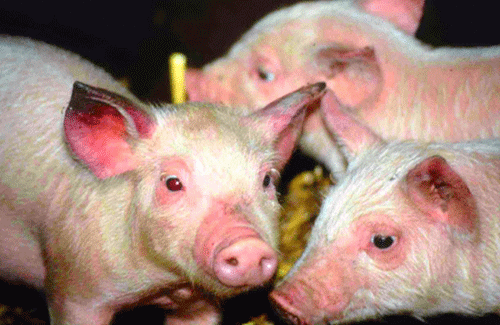Namibia’s directorate of veterinary services under the Ministry of Agriculture, Water and Land Reform, has introduced a raft of new restrictions on the importation of pork products into the country, especially fresh frozen pork.
The latest restrictions come into force following the outbreak of the Porcine Reproductive and Respiratory Syndrome (PRRS) virus, a viral disease characterised by two overlapping clinical presentations, reproductive impairment or failure in breeding animals, and respiratory disease in pigs of any age.
In an effort to contain the spread of the disease and to also protect the local pork industry, chief veterinary officer Albertina Shilongo, shared that fresh frozen pork will be strictly imported into Namibia under new requirements and no compromises will be made.
Among the new restrictions, the country where fresh frozen pork originates should be free from PRRS or the imported fresh frozen pork should originate from zones/compartments free from PRRS in accordance with Article 15(3)(3) of the World Organisation for Animal Health.
In the case where the country is not free from PRRS and has no free zones or compartments, Shilongo explained that imports would only be allowed if the pigs from which raw pork was derived were isolated or quarantined for a minimum number of 37 days at an establishment approved for export and where they were reared.
“The pigs should have been subjected to ELISA tests using blood samples collected between day 10 and 15 during their quarantine period and should have been slaughtered in blocks to avoid any possible cross-contamination with animals from other sources. Importation of fresh frozen pork that does not comply with the above import requirements with regards to PRRS will be rejected and sent back to the country of origin or destroyed at the importer’s cost. Meat products [cooked/processed pork] for commercial purposes may still be imported into Namibia under the veterinary import permit,” she added.
Symptoms of acute PRRS virus infection in pigs infected in utero or shortly after birth include severe dyspnea, such as laboured breathing or thumping, lethargy, inappetence, fever, swelling of the eyelids, and a blue or red discoloration of the ears or hindquarters.
Pre-weaning mortality may reach 100% at times. There is no specific treatment for PRRS but broad-spectrum antibiotics may be useful in controlling secondary infections. Anti-inflammatory products such as aspirin are commonly administered during acute disease.
PRRS cannot infect humans and does not pose a risk to human health. Likewise, cats, dogs, guinea pigs, mice, opossums, raccoons, rats, and skunks are not susceptible to PRRSV.
-ohembapu@nepc.com.na


